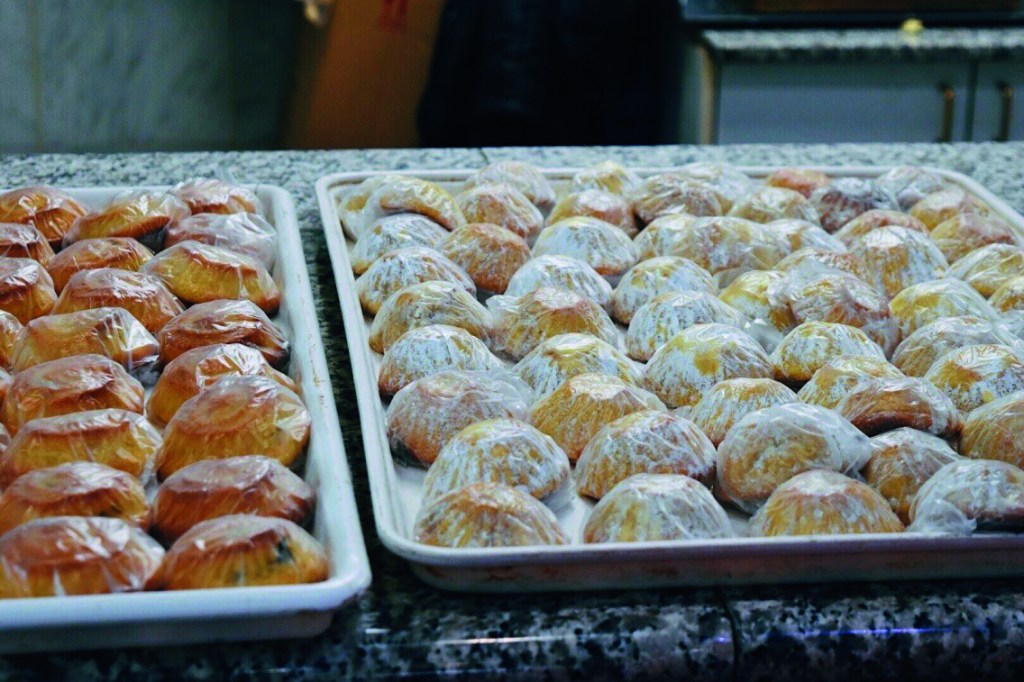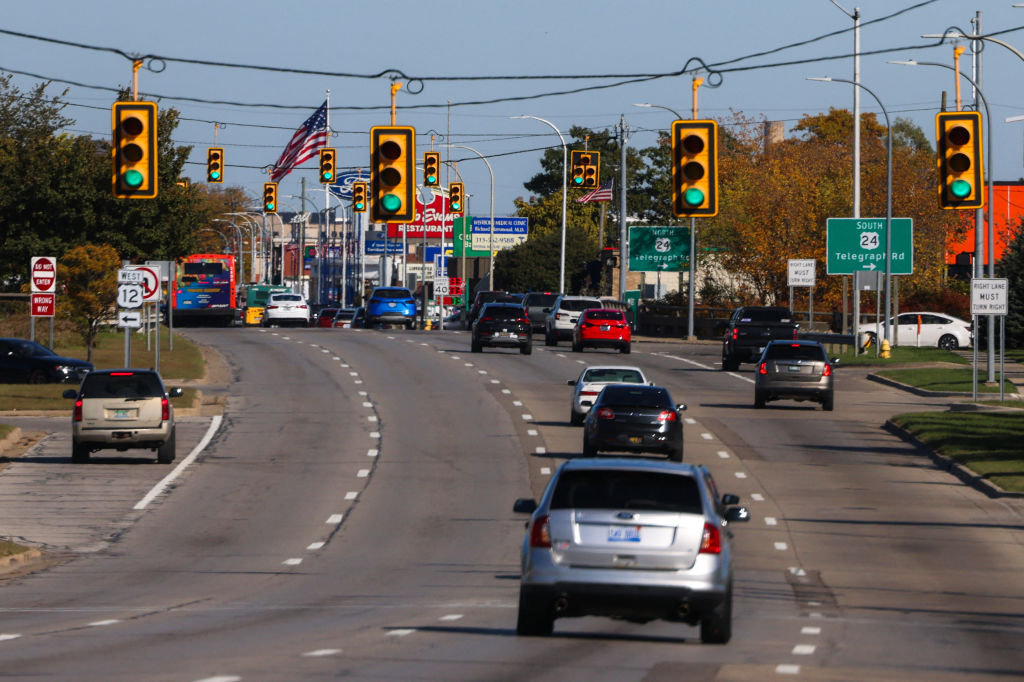Americans will drive anywhere, but only immigrants will drive eight hours for groceries. Our community of Syrians and Lebanese trek from western Pennsylvania to Dearborn, Michigan, where a handful of small Levantine groceries sell ingredients too obscure for a Rust Belt supermarket: Cortas rose water, Al Wadi tahini, bags of dried wildflowers for zhourat tea.
Eight hours round-trip by the Ohio turnpike, Dearborn is my family’s culinary refuge, and home to America’s largest population of Arab Americans. Henry Ford, also an advocate of driving, was born here on the family farm. The burgeoning auto industry attracted Arabs from the Levant, and Ford gave his employees healthcare, English classes and a trade school. More recent immigrants have come from Lebanon, Syria, Iraq and Yemen. You know you’re entering Dearborn when the billboards transition from English ads for ambulance chasers to Arabic ads for grocery stores and immigration attorneys. Soon enough, you see a strip of bakeries, groceries, cafes and hookah lounges.
Middle Eastern cuisine, rich in fresh produce and olive oil, confounds the calorie counters: see the serpentine lines at shawarma trucks in Manhattan and the rapid growth of chains like Cava Grill. But a vegan bohemian joint selling falafel and hummus in a gentrified neighborhood is ersatz Dearborn. It offers no glimpse into the origins of the cuisine, or the melancholy of displacement. Dearborn is a gateway for Arab longing, where everyone understands wistful reflection on olive trees and molasses-like figs. I’ve noticed this nostalgia in other communities too, when Italian or Greek neighbors would, like my father, try to grow a fig tree in the stubborn, finicky Pennsylvania dirt, like it’s a keepsake.
Coffee and the maqha (coffeehouse) are an Arab tradition. Coffee, the Palestinian poet Mahmoud Darwish wrote, is ‘the virgin of the silent morning’ and must not be defiled: ‘The aroma of coffee can absorb sounds and will go rancid, even if these sounds are nothing more than a gentle “Good morning!”’ At Qahwa House, Yemen feels temporarily within reach when drinking qishr, made with ginger and coffee husks. At the New Yasmeen Bakery, ordering three dozen loaves of pita bread is a revolt against the tyranny of Wonder Bread. The stacks of soft pita are round like moons with a pocket. My family buys them in bulk, as wraps for shawarma, for zeit w’zaatar (olive oil and thyme sandwiches), and as a utensil in lieu of silverware.
The olives at the grocery glisten like leathered jewels, undefiled by the excision of their pits. The taste of a pungent, briny olive is older than meat and wine and, as the novelist Mort Rosenblum said, is ‘more than a humble lump at the bottom of a martini’. Dearborn provides the human context of Middle Eastern food. It’s greater than the sum of its parts: an intimate glimpse into the reality of being from a region that is often mischaracterized, a source of pungent nostalgia in those who leave it, a stimulus of sensory memories.
A taste transports you to a lush village on the Lebanese coast, a coffee farm in Yemen, a Syrian cafe where old men play backgammon on wooden mosaic boards while cigarette smoke hangs over cloudy cups of anise-flavored arak. To your mother’s kitchen, where a copper coffeepot boils Arabic coffee, viscous like quicksand and strong enough to prevent you from ever leaving.
Arabic coffee
Ingredients
1 espresso-cup of water per person 1 teaspoon of Maatouk Lebanese Coffee Original Gourmet Blend (or high-roasted, fine-ground Arabica beans) per person 1 pinch of cardamom per personSugar to taste
Method
1. Add the water to a brass coffee pot, called a
rakweh (Turkish: ‘finjan’; Greek: ‘briki’). Bring to a boil over medium-high heat, then remove the pot from the heat. Stir in the coffee and the cardamom. If a thicker consistency is desired, add a dash more coffee.
2. Return to heat when the coffee stops foaming and bring back to the boil. Remove again once foam develops and return to heat when it subsides. Repeat, bringing to the boil a third time.
3. After drinking, a dark sludge of coffee grinds will remain in your cup. Place saucer over the cup, flip it upside down and wait five minutes for the sediment to settle. Remove the cup from the saucer and look inside. Read your guest’s fortune from the patterns.
This article is in The Spectator’s October 2020 US edition.

























